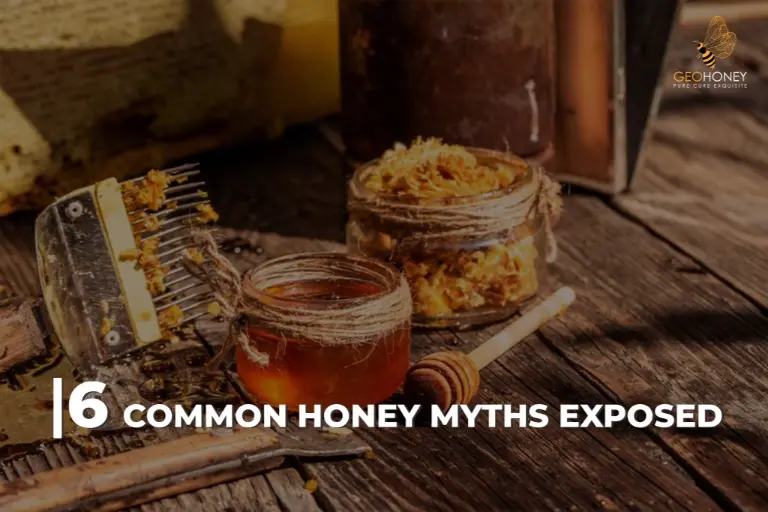


Honey is a golden liquid that has been used for centuries. It is known for its incredible medicinal and antibacterial properties. However, many misconceptions about honey have been passed down through generations. In this blog, we will disprove six common honey myths and provide you with the facts.
Myth 1: All Honey is the Same
Fact: Honey comes in many colours and flavours. The colour, taste, and scent can vary widely depending on the source of the flower nectar, region, soil and climate. Warmer temperatures, storage and age also tend to darken the honey and change its flavour. Each type of honey offers unique and diverse qualities.
For example, Manuka honey is made from multi-flower pollination that combines nutrients from several herbs and flowers. As a result, the health benefits are incredible. This type of honey can lower heart diseases, boost the immune system and enhance hair and skin conditions.
Myth 2: Honey Never Expires
Fact: Honey has a long shelf life, but it can go bad. Honey is hygroscopic, which means that while it contains very little water in its natural state, it does absorb humidity if left unsealed. When the sweet, sticky substance is stored uncovered, it can absorb moisture and ferment. This can lead to a sour taste and a strange odour. It is recommended to store honey in a cool, dry place and keep it tightly sealed.
Myth 3: Crystallised Honey is Spoiled
Fact: Crystallisation is a natural process that occurs when glucose in honey separates from water and forms crystals. This process does not affect the quality or safety of the honey. Crystallised honey is still edible and can be used in the same way as liquid honey. To liquefy crystallised honey, place the jar in warm water or microwave it for a few seconds.
Myth 4: Heating Honey Makes it Toxic
Fact: Heating honey does not make it toxic. The truth is that when heated, natural honey cannot emit poisons and toxins because they are not inherently present in it. However, heating honey can destroy some of its beneficial enzymes and nutrients. It is recommended to consume honey in its raw form to get the maximum health benefits.
Myth 5: Thick Honey is Superior
Fact: The thickness of honey does not determine its quality. Many people think that thicker honey is superior to thinner honey, but this is not true. The thickness of honey depends on its sugar content and the temperature at which it is stored. Some honey varieties are naturally thicker than others, but this does not affect their quality or taste.
Myth 6: Honey is a Vegan Food
Fact: Honey is not a vegan food. Vegans do not consume any animal products and honey is made by bees. While bees are not killed to produce honey, they are exploited for their labor. Bees are often overworked and subjected to harsh conditions in commercial honey production. Therefore, honey is not considered a vegan food.
Honey is a natural sweetener that offers many health benefits. However, it is important to separate the facts from the myths to fully appreciate its benefits. Remember to store honey properly, consume it in its raw form and choose the type of honey that suits your needs.